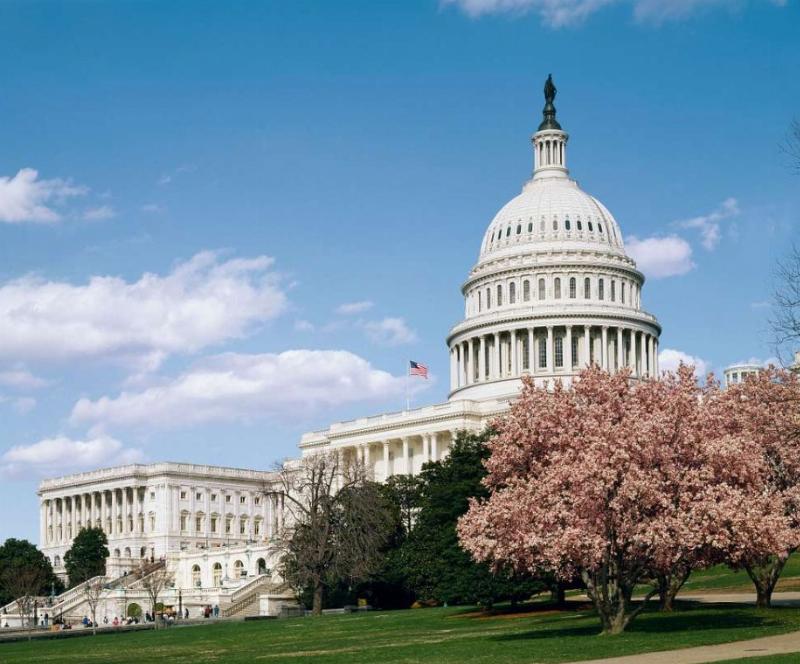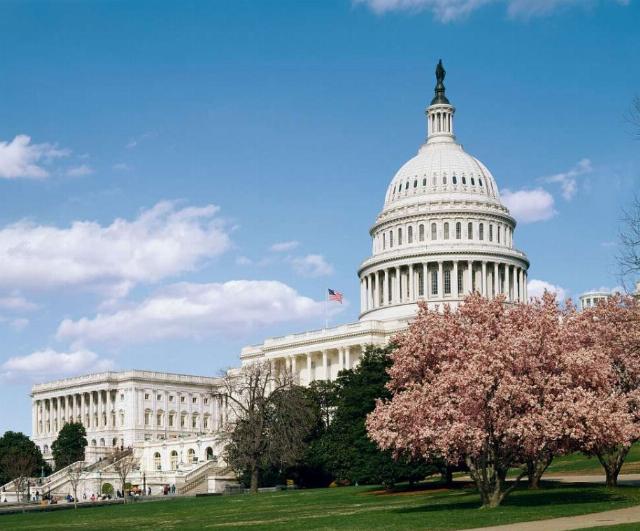


As Thomas Jefferson foretold, 536 despots are surely as oppressive as one. Today, a plural executive made up of the current 435 representatives, 100 senators, and vice president fills up the legislative calendar with logrolling, driving up spending.
These legislators extract their takings by taxing a lot away from everybody who adds value and by inflating away the rest from everybody who uses the politicians’ government-monopoly money.
Legislators’ grabbing and executives’ handover of the executive power to allocate budgets — legislators’ supposed line-item “power of the purse” — violates the Constitution to its core.
Constitution Secures Rights by Separating and Offsetting Powers
The Constitution defines fundamental rules to secure life, liberty, and property. Like with all laws, the only thing that gives these rules force are the associated sanctions. The Constitution’s sanctions are its offsetting powers.
Every government person is delegated powers by the people and by oath or affirmation is required to use those powers accountably. He is to limit himself to within the boundaries of his own office, and also he is to limit others to within the boundaries of their offices.
The latter limiting is what’s crucial. If each government person limits just himself, then most must do this before governments are limited. In contrast, if some government people also limit others, then some of them will be enough to limit everybody, using offsetting powers.
But offsetting powers exist and work only if powers are kept separated.
A legislative line-item “power of the purse” violates the most critical branch separation: the boundary keeping the legislative power, which is the strongest branch power, away from the executive power, which is the next-strongest. It’s hard to overstate how foundational this constitutional violation is.
The Constitution is defined by process rules. The national government’s three branches and the state governments are all distinct processes. Over half of the Constitution’s articles — the first 4 of its 7 — separate these processes and delegate offsetting powers.
The erroneous legislative line-item “power of the purse” stops appropriation from being a legislatively set limit that the executive must work within. Instead, legislators grab executive power and logroll up the takings. Also, executives forfeit their power that should independently limit the takings.
My article “The Duty to Limit the Take,” in Lincoln Memorial University Law Review’s current issue, systematically explains these errors’ unconstitutionality by considering the economic reality that the founding generation lived, the Constitution’s text, the founding generation’s arguments and actions, and businessmen’s understanding of executive power — which has evolved far more rapidly than government people’s understanding, and as a result is far superior.
Pass a Single Overall-Total Appropriation
Separating the Executive’s budget-allocation power away from legislators will begin renormalizing legislators’ and executives’ main actions.
Constitutionally, legislators must sponsor and pass a single overall-total appropriation, as outlined below.
Legislators should hold the Executive accountable to immediately start executing the Constitution more faithfully.
In year one, the Executive could, for example:
Since the Executive could make cuts this large, legislators should pass a corresponding national single overall-total appropriation that’s cut by 36%. This will leave national plus state spending cut by 24%.
Constitutionalist legislators should get this renormalization going by sponsoring or co-sponsoring this single overall-total appropriation, and by voting no to any alternative appropriations.
Business as usual can in effect be vetoed by a small minority of constitutionalists. They must use this veto. If at first a few get outvoted, more must join them.
Each incumbent who does this, and also each primary challenger who can be counted on to do this, will face massive spends from government cronies but will earn massive support from voters.
This would transform the 2026 elections. What would otherwise be a Progressive tag-team changeover or stalemate will instead be a wave election for Republican constitutionalists.
Repeal Unconstitutional Statutes, Execute Constitutional Statutes
Having started reducing overall spending, legislators must start doing their main job: passing constitutional rules and sanctions. Their first order of business must be to triage and repeal the sickening multitude of existing statutes that are plainly unconstitutional.
Each existing statute or new bill is unconstitutional unless it passes all of the following simple pass/fail tests:
(1) No misleading parts.
(2) Uses only powers enumerated for the national government.
(3) No delegation of legislative power.
(4) No grabs of executive power.
(5) No grabs of judicial power.
(6) Not noncritical, complex, or long, and not helping make the total corpus of law incomprehensibly complex or long.
There are mountains of statutes, so it would be a lengthy exercise to rigorously estimate what proportion of statutes would pass these tests. A rough approximation has been made, using Grok to document the approximation’s basis. All six tests might be passed by only 0.1% to 0.5% of existing statutes — one out of every 200 to 1,000.
Legislatively repealing the substantial scope that’s unconstitutional will greatly clear the way, leaving behind a much smaller, constitutional scope that the Executive can execute far better.
The executive, for his part, must correctly interpret which statutes and opinions are constitutional, and from there must optimally allocate and use the appropriation to faithfully execute those statutes and opinions.
Inflation is currently driven by total government spending of 43% of GDP. In the USA through 1913, other than during the Civil War, total government spending was 4% to 8% of GDP. In the American colonies, total government spending was 1% to 2% of GDP.
Our predecessors severely limited governments. This was the key to how they started building up our current substantial prosperity. We can limit ours, too, and build up even more prosperity.
Supporting the Constitution better will free us to radically build up peace and happiness.
James Anthony is a chemical engineer and the author of The Constitution Needs a Good Party and rConstitution Papers. For more information, see jamesanthony.us.

Image via Picryl.
